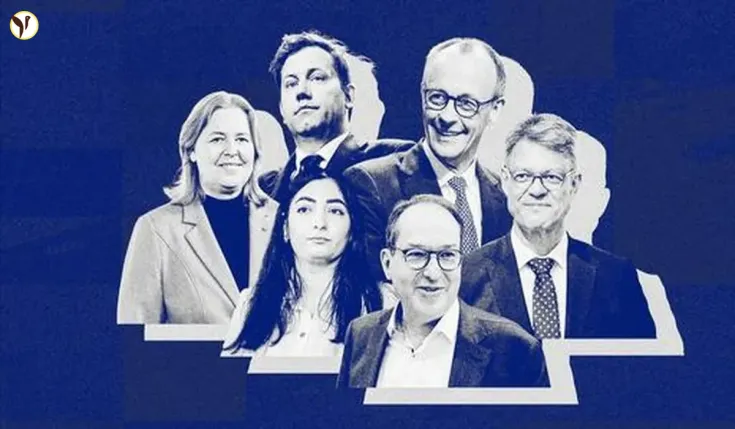Friedrich Merz's New German Cabinet: A Blend of Experience and Fresh Faces
Germany's political landscape has shifted dramatically with the appointment of Friedrich Merz's new cabinet. This article delves into the key ministerial appointments, highlighting the experience and new perspectives brought to the table as the nation faces numerous challenges.
Key Ministerial Appointments and Their Implications
The new cabinet boasts a mix of seasoned politicians and fresh faces from across the political spectrum. Thorsten Frei, appointed head of the Kanzleramt, brings extensive experience from his time as mayor and legal background. Lars Klingbeil, the SPD leader, takes on the crucial role of Vice-Chancellor and Finance Minister, demonstrating a surprising level of bipartisan cooperation. Alexander Dobrindt's return as Interior Minister signals a stricter approach to immigration, a key CSU policy. Katherina Reiche, with her business and political experience, leads the Ministry for Economy and Energy. Other notable appointments include Boris Pistorius (Defense), Johann Wadephul (Foreign Affairs), and Bärbel Bas (Labor and Social Affairs).
SPD's Representation in the New Government
The SPD's representation in Merz's cabinet is notable, with a focus on generational change. Lars Klingbeil's appointment as Finance Minister is a significant move. Other notable SPD members include Boris Pistorius (Defense), Reem Alabali-Radovan (Economic Cooperation and Development), Bärbel Bas (Labor), Verena Hubertz (Construction), Stefanie Hubig (Justice), and Carsten Schneider (Environment). The inclusion of several female ministers signifies a shift within the SPD.
Karsten Wildberger: The Surprise Digital Minister
Perhaps the most surprising appointment is Karsten Wildberger as the first Federal Minister for Digitalization and State Modernization. His extensive background in business management and digital transformation is expected to bring a fresh approach to Germany's digital initiatives. This unprecedented appointment reflects Merz's commitment to modernizing Germany's digital infrastructure.
Challenges and Expectations
Merz's cabinet faces significant challenges, including navigating Germany's economic landscape, addressing immigration concerns, and pushing forward digitalization. The success of this new government hinges on the ability of these ministers to collaborate effectively and implement policies that address the nation's needs. The coming months will be crucial in assessing their performance.






